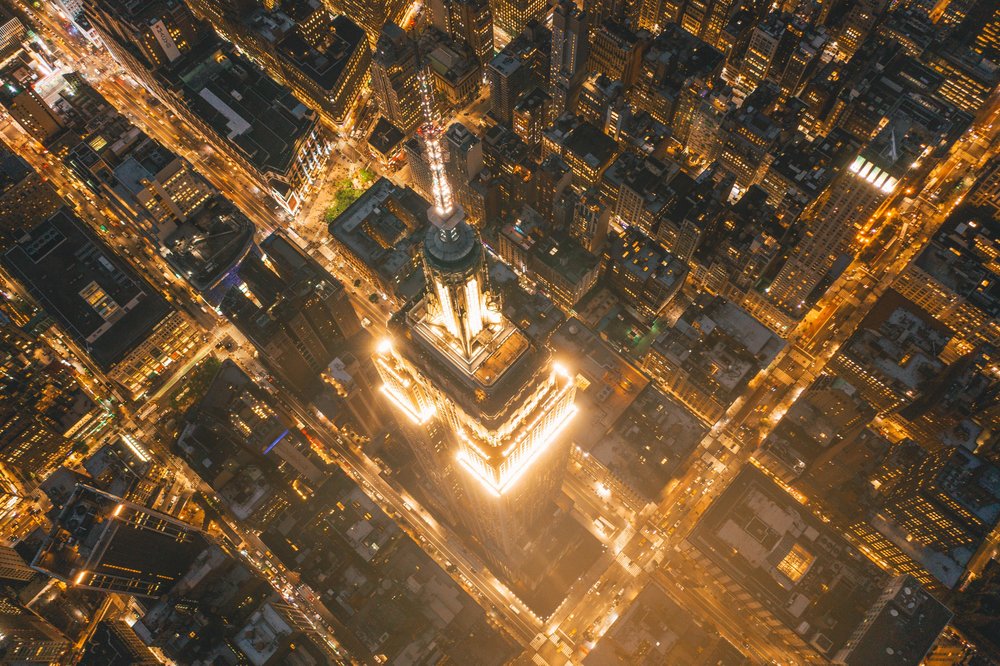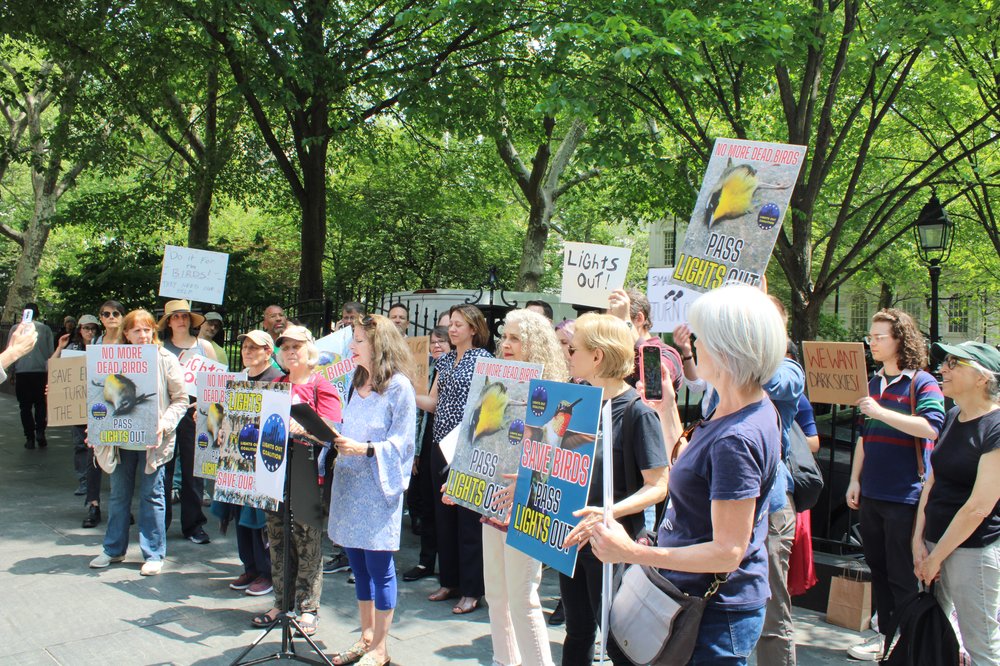230K birds die annually by smashing into NYC windows. A new bill aims to save them.
May 11, 2023, 6:05 p.m.
On Thursday, wildlife advocates showed their support for a bill that would require commercial buildings in New York to turn off unnecessary lights.

Members of Councilmember Francisco Moya’s office announced a lights-out bill proposal to address migratory bird deaths at a rally outside City Hall on Thursday. The proposal would require many privately owned commercial buildings to reduce lighting at night.
New York City’s shining glass buildings represent both a beacon and a death sentence for migratory birds. Each fall and spring, millions of them flock through the city that never sleeps on their way between their summer breeding grounds and winter habitats. Nearly a quarter million birds don’t make it out, NYC Audubon estimates. Instead, these birds meet an untimely end smashing into brightly lit facades and clear glass windows.
“We can still enjoy the lights of Broadway and Times Square, but we can be smart about what lighting we do have on at night,” Rebecca Beaver, legislative and budget director for Moya, told supporters at the rally.
The proposal states that buildings can apply for landmark status or demonstrate a security need to keep necessary lights on at night. The lights out requirement wouldn’t apply when anyone is present inside a building.
“Light attracts and disorients birds, especially artificial light at night,” Jessica Wilson, executive director of NYC Audubon, told Gothamist. Migratory birds typically fly at night so “they can be drawn in from hundreds of miles away to urban areas like New York City, which are just aglow with artificial light,” she explained
Turning off half of the lights in a building can reduce bird collisions by six to 11 times depending on the time of year, a recent study conducted in Chicago found. Each building that dims its lights helps birds return to normal behaviors, said Andrew Farnsworth, a senior research associate at the Cornell Lab. “Whenever we remove light, we remove that attractive and disorienting capability.”

Moya’s proposal is a reintroduction of a bill considered by the City Council in 2021. The prior bill never made it to a vote after opposition from the Real Estate Board of New York, which said in its testimony at the time that “realizing the goals of this law would dramatically disrupt the operations of commercial buildings.” The board raised concerns about staff time needed to implement the policy and the importance of security lighting.
In 2021, the City Council passed two bills to reduce lighting in buildings owned and operated by the city. Regulating lighting in private buildings is a crucial next step, said Wilson.
“If this bill passes, this would be landmark legislation," Wilson said. "It could be a model for the rest of the nation, which is how New York City should be.”
With nearly 1 million buildings citywide, Wilson said that solving New York City's bird collision problem requires legislation rather than a voluntary program.
“Unless everybody complies, it’s not going to make much of a difference,” she said.
Supporters of lights out legislation point out that artificial light doesn’t just affect birds. “Light pollution kills. It kills our most vulnerable: birds, other animals, humans, especially those living in EJ [environmental justice] communities, women, the unhoused, and the planet,” Kathy Nizzari, founder of the Lights Out Coalition, said at the rally.
For humans, nighttime light pollution can interrupt the body’s circadian rhythm and lead to more serious health problems overtime. Research has found that in the U.S., people of color are more likely to experience light pollution than white people.
When it comes to birds, the policy will help individual migrators, and have a greater impact on conservation, said Wilson. “Bird populations are in decline. It’s estimated that over the last 50 years we’ve lost 3 billion birds,” she explained. “Turning out the lights, it’s an easy step New Yorkers can take.”
Redesigned Starlight Park in Bronx is ‘a win for nature and a win for people’ Rooftop gardens pitched for bus stops as cheap remedy to NYC’s flood problems